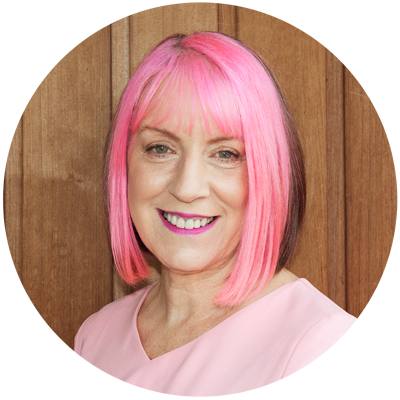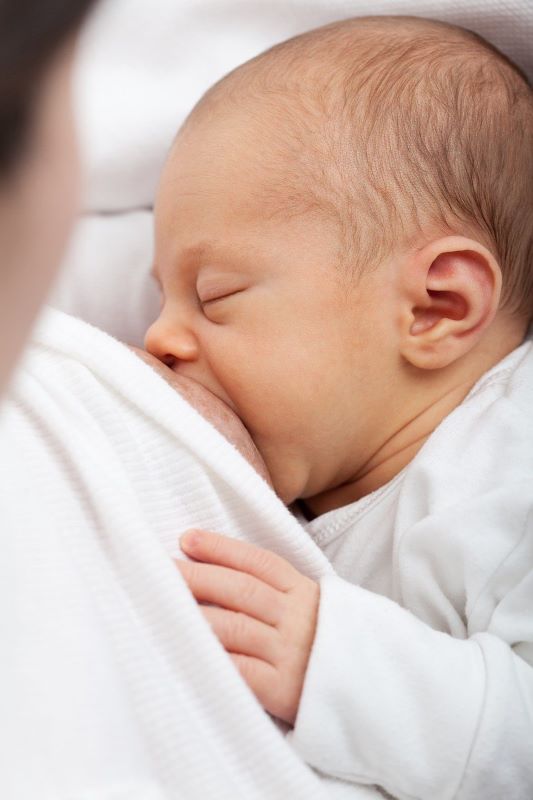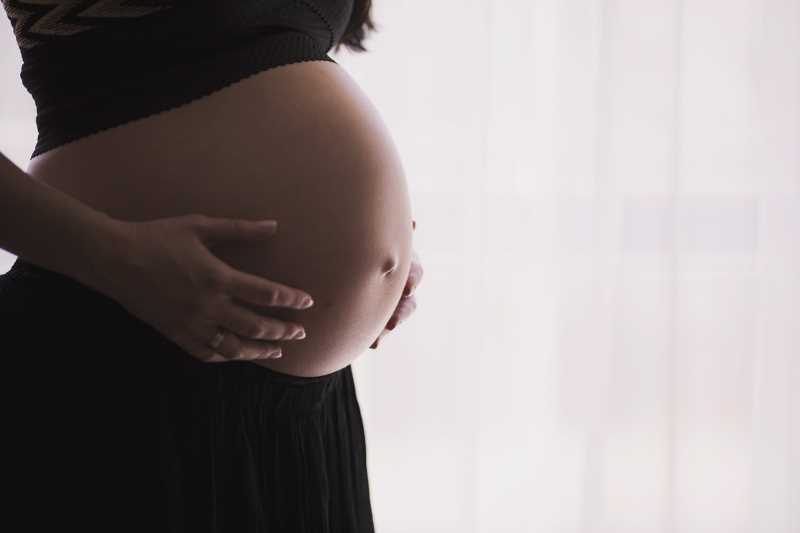Having a baby is a life-changing event and one that requires preparation. I read books, looked online and asked other mums about their experiences.
For me I was not just having one child first, I ended up having twins as my first children. I don’t know how many do this but I am sure that it is not that common.
BigW invited me to be a part of their Bub & Me Education Program in collaboration with select midwives across Australia.
This post is the first in my three-part series about being a new mum, breastfeeding, childbirth and great things you can get from BigW for your new little person/people.
My interview with Pinky McKay
Below are my questions to Pinky and her answers, I hope that this interview is helpful for all new mums.

Pinky McKay is Australia’s most recognised breastfeeding expert
Q1. The expectation of what it is like to be a parent to the reality can be quite a shock for new mums. What do you tell new mums about suddenly being responsible for a little person?
A 1. A recent survey by Big W in conjunction with The Australian College of Midwives revealed one in three (32%) of Aussie mums struggle the most with self-doubt, which is really not surprising. Having a baby is rather like visiting a foreign country for the first time: no matter how well you prepare, no matter how many frozen casseroles there are in your freezer, how many products you buy or how many classes you attend, there will be shocks.
The relentlessness of caring for a newborn is something we can’t really imagine until it happens to us. I wish every pregnant woman could spend a day (and night) with a new mum and support her – hold her baby while she showers, while she naps, and see that crying isn’t just for newborns, mums cry too (I warn partners about this too). The biggest surprise can be the weird brain things that happen such as ‘hearing’ your baby crying when you are having a shower, then racing to check and finding him peacefully sleeping, right where you left him, neatly swaddled in his safety-approved cot.

Q2. How do you help new mums with sleep deprivation and learning about their new baby?
Pinky: Before birth, I suggest how important it is to set up your support network. If I am seeing a desperate new mum, I always ask about what level of support she has and discuss ways to get support if she doesn’t have enough help. We are so conditioned that reaching out and asking for practical help is ‘weak’. It absolutely takes a village, whether this is hired help, friends and family or government-funded ‘in-home care’ (I have facilitated this for families with high needs).
The biggest thing is about lowering expectations both of yourself and your child and filtering out the ‘noise’ about what you ‘should’ be doing –according to a recent survey by Big W, 67% of mums say social media puts pressure on mums to live an ‘insta-worthy’ life.
While good basic care such as eating healthy meals and resting are especially important in the early weeks as women are healing from growing and birthing a baby, guarding your emotional energy needs to be a priority. Often, the pressure and anxiety around baby sleep, for instance, can take more energy than the lack of sleep. I tell mums, YOU are the expert about YOUR well baby. You can trust yourself and your baby and the amazing connection between you and your child. If you feel confused by advice, you can filter it by checking, ‘is it safe? Is it respectful? And, does it feel right? And if you have concerns, check in with your health carers, not ‘randoms’ on social media.
Q3. I thought I knew what I was doing with my third child, but he was so different and nothing I did worked. I was doing all the things that worked with the twins but finally had a realisation that he is a different person and I needed to listen to his cues and focus on what he likes and doesn’t like. How do you help parents do this from the start if they have more than one child?
Pinky: As a mum of five, I was always amazed at how unique each child was, from their temperament to their development. Although babies all have similar needs for security and love, it’s helpful to discuss how they vary in the ways they express those needs. They are unique, individual little beings and although we can support their personalities, we can’t ‘mould’ our child or reflect in the glory of having an ‘easy’ baby. It’s best to observe and get to know each new baby’s cues and respond to that baby in a way that’s right for them. If we do have a more sensitive baby, the good news is that we really can’t short-change them or they will let us know, and by responding promptly, they will feel secure and usually become happy, calm little people as they grow.

Q4. My third child was super fussy, had reflux and found it hard to remove burps and any gas from his body. Not only did he cry all the time, not settle well and want to be held all the time I was walking around like a zombie due to the lack of sleep. Do you have any recommendations on how to settle a fussy baby or one that has other issues that are making things more difficult for him/her to sleep and to eat?
Pinky: Rather than simply heading to ways to ‘settle’ although of course, keeping your baby as comfortable as possible is important for baby and you, it’s worth trying to work out why this is happening. For instance, could there be allergies or food intolerance contributing to reflux symptoms (your baby is never allergic to your breast-milk but may react to foods passing through your milk)? Tongue-tie can also mean babies are swallowing air because their latch and sucking is often ineffective, and a fast breast milk flow can also create issues for young babies swallowing air as they feed – reclining as you feed or ‘paced bottle feeding’ can slow the flow and make it easier for baby to manage.
It is really hard work when you have a super unsettled baby, especially if you have other children, but wearing your baby in a carrier or wrap can help settle your baby and you can still do activities with two free hands. There are also ‘holds’ that can help relieve gas pains such as lying baby across your arm on his tummy, with his head facing your elbow and supporting him with a hand between his legs as you walk/sway. Baby massage can be a great way to support your baby’s nervous system and move the gas – clockwise circles on baby’s tummy, alternated with knee bends.

Q5. I expressed my breastmilk for all three kids and due to the twins being premmies this was needed. However, I thought having a singleton that was born exactly at 40 weeks that he would be better at breastfeeding. It turned out that my third child couldn’t latch on and would only eat a bit and then wanted more. I would feed more and then he would wriggle and scream at me all the time. So, I decided, since it was frustrating him and me and causing me stress to express breastmilk again was the way to go. Are there ways to increase your breastmilk supply when you are stressed, running on no sleep and caring for two other kids and husband.
Pinky: Wow! That sounds like a nightmare. Firstly, it’s important that regardless of your sleep (or lack of it), that you eat regularly – handy one-handed snacks such as Boobie Bikkies, avocado or cheese on crackers, a can of tuna or salmon and boiled eggs (cook several and keep them in the fridge) are an easy boost – and drink according to your thirst. Your partner’s /husband’s support is vital – he is a grown-up so needs to take up some of the slack, not expect to be ‘looked after’. Please don’t be shy about setting up a help roster with friends, whether that is doing a school pickup, taking your other kids out so you can rest and focus on feeding or bringing food. Most people are delighted to share the experience of a new baby.
Try to set up young children with activities and snacks (‘Netflix and chill’, even if it’s a kids’ show or sit on the big bed and read stories or sit outside and get the toddlers to ‘paint the fence’ with water), so you can spend time giving baby skin to skin snuggles to boost your milk-making chemistry and allow baby to feed frequently.
Remember, an empty breast makes milk more quickly so as you breastfeed or pump, you can try massage and breast compressions (high up on your breasts, not down near the nipples) to help empty your breasts more effectively. You will notice your baby start swallowing more quickly and if pumping you will see the milk start flowing a few seconds after compressions. If you are exclusively pumping or baby isn’t a strong feeder you can try power pumping (as well as putting baby to the breast if he will latch): To power pump: Pump for 20 minutes; Rest for 10 minutes; Pump for 10 minutes; Rest for 10 minutes; Pump for 10 minutes. A double electric pump is most effective – otherwise, if you use a single pump, instead of the rest periods, switch breasts and pump the other side.
If you have concerns about breastfeeding, it’s always helpful to see an IBCLC Lactation Consultant who can take a history of your baby and you and give you personalised advice (conditions such as thyroid disorders, PCOS, low iron levels, retained placenta or PPH can all influence milk supply).
Pinky McKay is Australia’s most recognised and respected Breastfeeding expert. She’s an IBCLC Lactation Consultant, Best Selling Baby Care Author, Mum of five and creator of Boobie Bikkies, award-winning, all-natural and organic cookies to nourish breastfeeding mothers and support a healthy milk supply. Download our FREE ebook ‘Making More Mummy Milk, Naturally for Pinky’s top tips to help you boost your milk supply

DID YOU KNOW?
- BIG W research reveals three-quarters of Aussie mums have regrets about their first pregnancy including spending a whopping $163 million on baby products, as well as spending over 23 million hours shopping ahead of the birth of their first child.
- Social media pressure – Two thirds (67%) of Aussie mums of children aged 0-13 agree that social media puts pressure on new mums to lead “instaworthy” lives
- Shop ‘til they drop – one in six mums spend a staggering 41 hours or more shopping for baby products before birth
- Bub & Me time – 25% of Aussie mums say they regret not savouring the time when they were pregnant
- Special talents – Breastfeeding is the achievement Aussie mums are most satisfied with, with one in four (24%) claiming it as the skill they are most confident in
Highs and lows – 1 in 3 Aussie mums found the first six weeks after giving birth to be the hardest phase of their baby’s development.
Did you know that the most enviable celebrity mums include:
- P!NK (33%)
- Julia Morris (23%)
- Laura Byrne (21%)
- Kate Ritchie (20%)
A huge thank you to BigW and Pinky McKay for this opportunity. Make sure to stay tuned for the next two posts in BigW Bub & Me Series on Mummy to Twins Plus One.
Sign up for my newsletter
Stay current with all the things that are happening on Mummy to Twins Plus One. Don’t miss a thing by signing up for my newsletter. This newsletter will list all giveaways and fabulous things that are happening.
This page contains affiliate links





